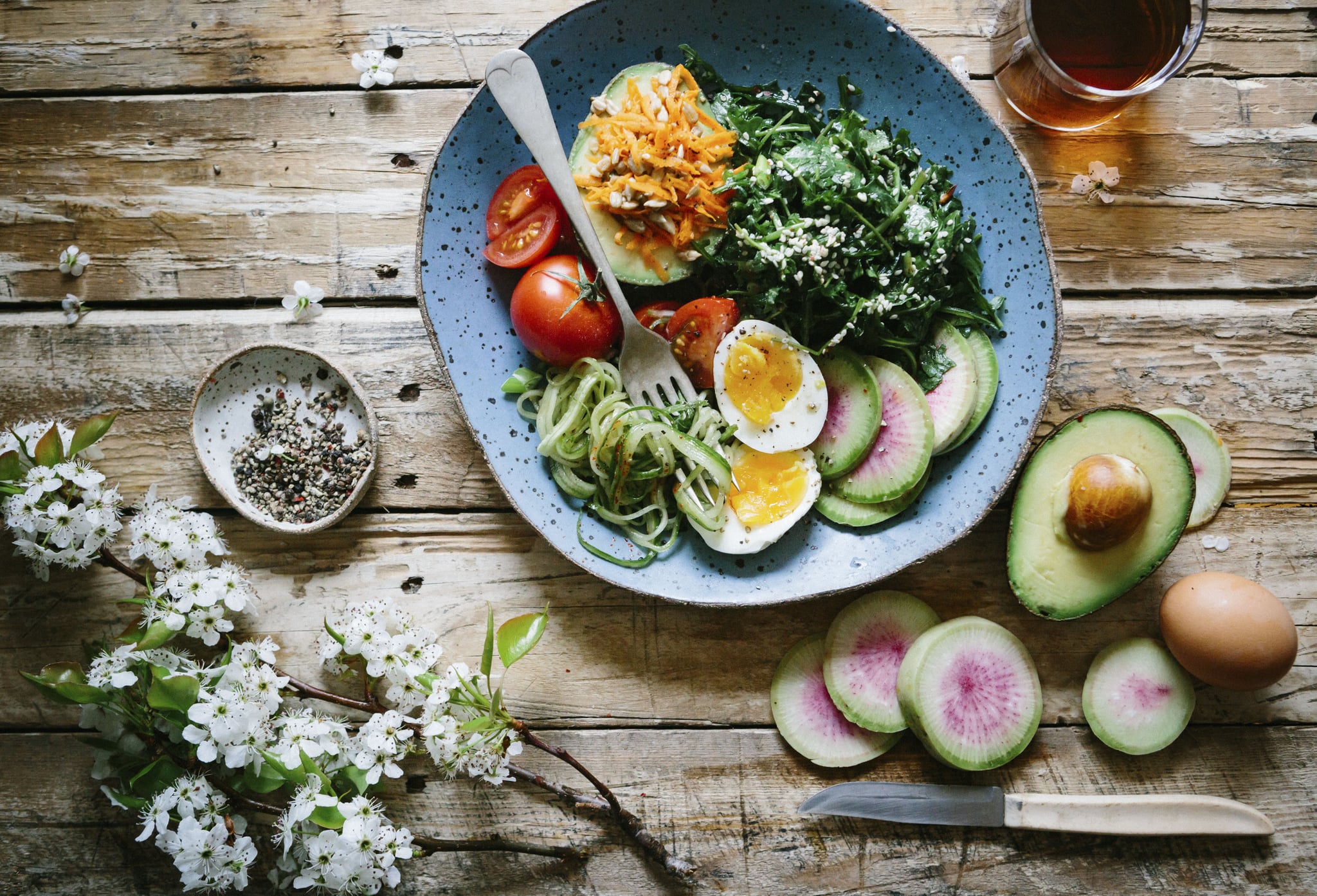What Can You Eat on a Whole30 Diet?
Whole30: The Skinny on What You Can — and Can't — Eat

If a regular diet is like enlisting in the Navy, Whole30 would be like Navy SEAL training: only the strong survive. As nutritionist Amy Giustino-Talbot explained to POPSUGAR, "The premise of Whole30 is to reset your body's metabolic clock, eliminate sugar cravings, and cure everything from digestive issues to hormone imbalances."
In this day and age of food allergies, digestive disorders, chronic illness, and other physical and psychological conditions potentially triggered or exacerbated by food (or food additives), the Whole30 method seeks to eliminate all possible triggers and clear the path for a clean restart. The concept is based on a 30-day period of clean eating that eliminates problematic food sources, namely sugars (real and artificial), grains, legumes, alcohol, dairy, and, even more intimidating, baked goods, treats, or junk food made with "approved" Whole30 ingredients. That means your Paleo pancakes made with just bananas and eggs are out for 30 days, my friends.
Unlike other "diets," Whole30 is a detox program with what its proponents like to call potentially life-changing ramifications. According to Melissa Hartwig, cocreator of Whole30, "[I]t will change the way you think about food. It will change your tastes. It will change your habits and your cravings. It will restore a healthy emotional relationship with food and with your body. It has the potential to change the way you eat for the rest of your life."
Because of its focus on preparation in advance of the detox, Giustino-Talbot believes this "is a safe and attainable way to detox the body from sugar and spice and everything not nice to your waistline and your blood test numbers — even if it is delivered with tough love."
Whole30 is an all-or-nothing proposition. The creators do not believe in slip-ups, cheat days, or "special occasions." If you fall off the Whole30 wagon, even with just one bite of ice cream, your 30 days restart the next day. The kindest aspect of the Whole30 experience seems to be the instruction of "no weighing yourself, analyzing body fat, or taking comparative measurements during your Whole30." The focus is on improving health over losing weight; therefore, focusing on healthy eating vs. a measurement or weigh-in advances the cause.
Whole30 also prioritizes changing eating habits, which is why it will not allow designer impostor foods made up of approved ingredients — e.g., no Paleo bread or homemade coffee creamers. They call this concept Sex With Your Pants On (SWYPO) food. SWYPO suggests that re-creating foods from your old, unhealthy habits with newer "healthier" ingredients negates the Whole30 reset button on your overall diet, including an emotional attachment to foods such as pancakes or junk food. If you know how good regular pizza tastes and make Paleo pizza instead, you'll be more likely to slip up and seek the regular pizza because you know it tastes more like the pizza you actually wanted. (So Paleo pizza is sex with pants on and regular pizza is pants-free.) Bottom line: don't fake it. You can make it 30 days without real or faux pizza.
Knowing all this, let's look at some of the particular foods you can (and most notably cannot) eat during the Whole30 diet/detox. For a more exhaustive list, go to Whole30's "Can I have . . ." forum. It takes effort, and a lot of label reading, but Whole30 participants swear by their results.
| "Yes" Foods | "No" Foods |
|---|---|
|
Potatoes (except french fries), moderate portions of meat, bacon (but not supermarket variety), seafood, eggs, most vegetables, some fruit, natural fats, herbs, spices, and seasonings, cacao, carob, chia, coconut flour, dates, flax seeds, fruit juice (as a sweetener, discouraged as a drink), green beans, hemp seeds, snap/snow peas, tahini, ghee or clarified butter, vinegars (except malt), coconut aminos, salt, some mayonnaise
|
Alcohol, bread, canola oil (unless eating out), all dairy, any store-bought chips (homemade OK), peanut butter, cream substitutes, sweeteners (except for natural fruit juices), dark chocolate, chewing gum, hummus, tortillas, biscuits, baked goods, (most) smoothies and protein shakes, quinoa, buckwheat, soy, carrageenan , MSG, sulfites
|




